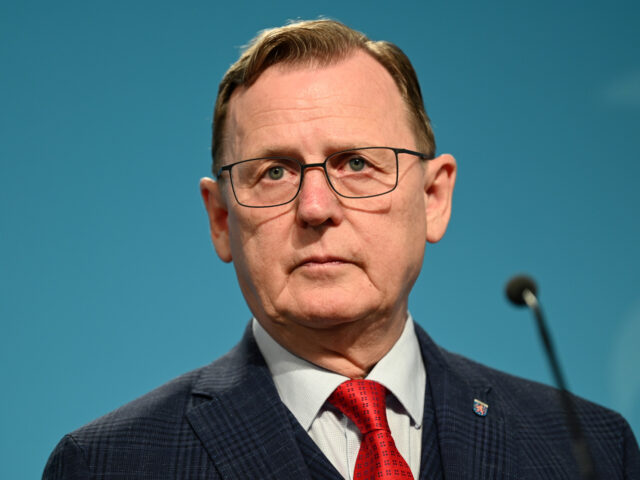A leftist German state Prime Minister has described those protesting the country’s car-crash energy policy as the beginning of a new “fascist movement” in the country.
Bodo Ramelow, the Prime Minister of Thuringia who is a member of the far-left Die Linke party, described what he saw as an ever more unified populist right in the country as being the embryonic stages of a new “fascist movement” in the country.
It comes as other politicians and officials in the country blame right-wing extremism for growing political unrest in the country, which appears to be in reality driven by the country’s energy and cost of living crisis, itself the creation of years of political mismanagement at the hands of the German elite.
With those looking to protest the current German government being previously slammed as “enemies of the state“, Ramelow has now taken to comparing protesters to a new “fascist movement”.
According to a report by Die Zeit, the leftist official compared protesters to the anti-Islamism Pegida movement, which had its heyday in Germany back in 2015 and 2016, but has largely since fallen into obscurity.
“A new Pegida is emerging,” the paper reports him as saying in response to a recent energy protest, which saw around 36,000 protesters take to the streets in his state alone.
“Everything that somehow belongs to the right-wing spectrum gathered there, reaching down to the deepest right-wing extremist milieu,” he continued, with the paper noting him as claiming that “the formation of a new publicly visible fascist movement” could now be seen.
Although Remlow’s invocation of fascism perhaps marks a new high in the anti-right hysteria plaguing German politics in recent months, the leftist minister’s statements appear to be merely the latest attempt by the country’s political mainstream to curtail populism, or even just common concern about the government’s long-term mismanagement.
Statements slamming those on the right as being “conspiracy theorists” and “enemies of the state” have become ever more frequent, with major politicians and state officials frequently trying to paint populists as a source of chaos and violence in the country.
Such attempts, though widespread, have so far appeared to be relatively ineffective, with the country’s Alternative für Deutschland party making considerable gains in the polls in recent weeks, with some elected officials even now demanding the party be banned as it grows ever stronger.
Meanwhile, support for establishment parties appears to have fallen off significantly seemingly as a result of their dismal handling of the energy crisis, which was sparked in part by the radical green policies of the previous Merkel government, as well as the current leftist “Traffic Light” coalition.
With the country facing the possibility of a serious recession, inflation, and rolling blackouts, some officials have expressed fears of mass looting and riots, with one bigwig tasked with protecting Germany’s democratic constitution saying the coming months could make the COVID period, which was marred by tens of thousands taking to the streets to protest the government’s hardline COVID lockdowns, look like a “children’s birthday party“.

COMMENTS
Please let us know if you're having issues with commenting.